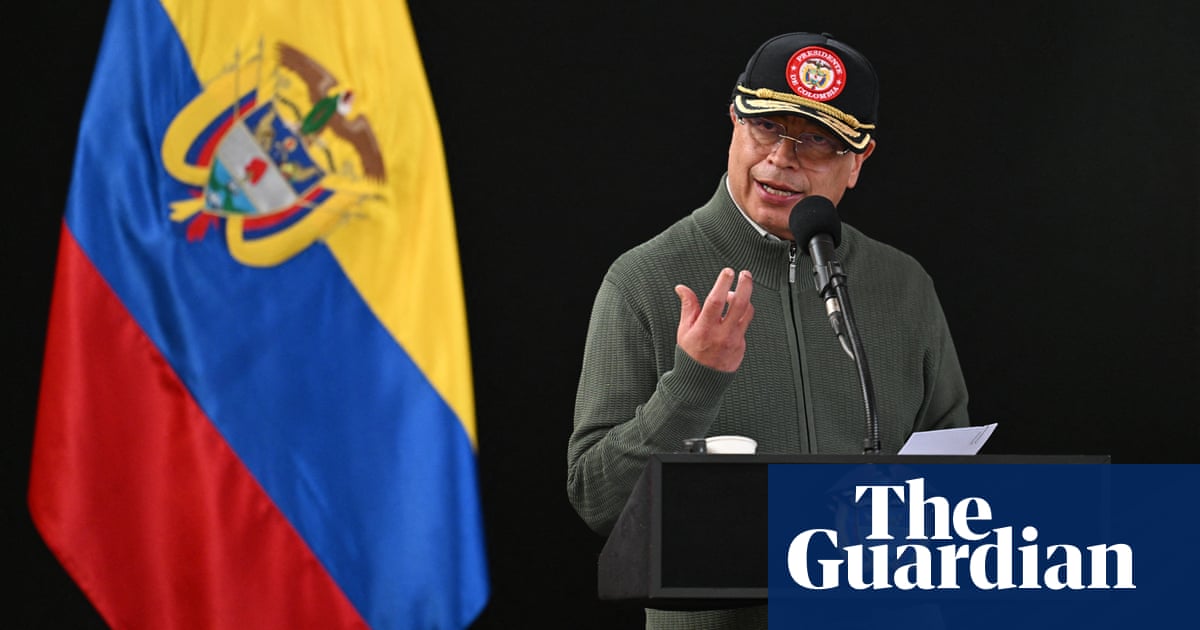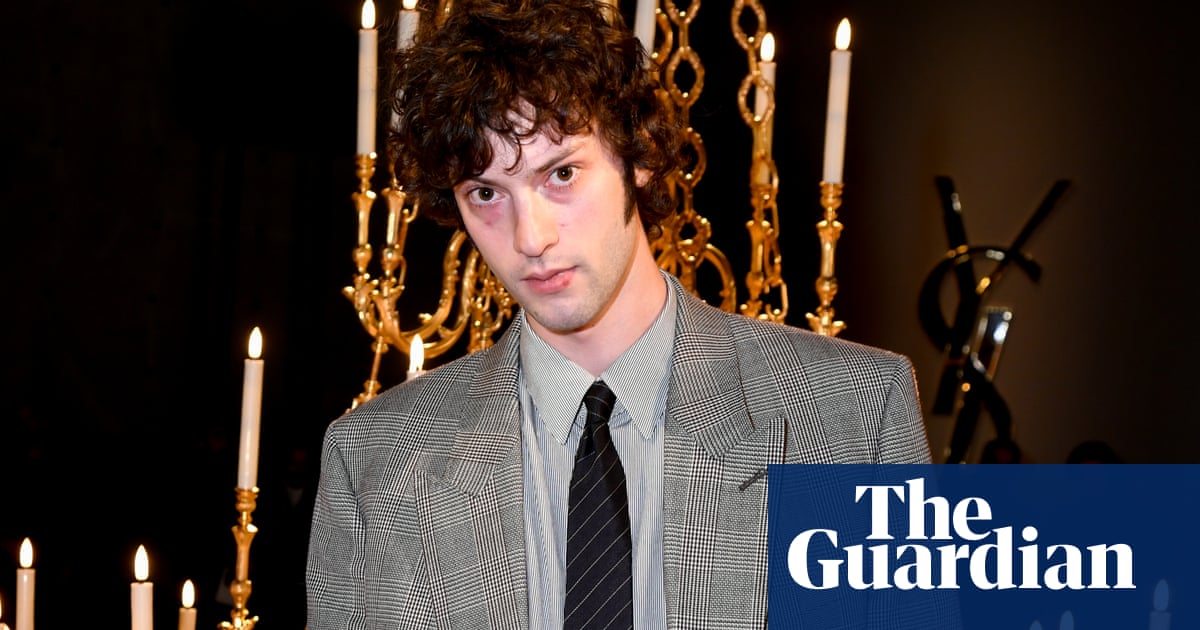When English teacher Joe Scott used to sign homework planners, it was because students were in trouble. But things changed in January, when the Southampton-based secondary schoolteacher appeared in the latest series of the BBC reality show The Traitors. Pupils started voluntarily pressing their planners into his hands – for autographs. “It felt funny,” says the 38-year-old. “It was such a juxtaposition.”
Teachers have always gone on reality TV – but they haven’t always come off well. In 2001, a contestant on the second series of Big Brother was fired from her job at an east London girls’ school after her towel slipped on air. Six years later in 2007, parents complained after an American elementary school teacher missed 22 days of work to appear on The Bachelor. Just last year, a Canadian educator was let go after taking unauthorised leave to compete on Survivor.
Expulsions like these make for explosive headlines, but like Scott, many teachers do in fact return to the classroom after appearing on reality TV. What is it like to try to discipline teenagers after they’ve watched you lose a gameshow or snog a stranger?
“I was mindful that I needed to act in a certain way because I knew my pupils would be watching,” says Scott, who was in teacher training and working at a placement school when he applied for The Traitors. Handily, the show’s shooting schedule coincided with the school holidays, but he says BBC rules dictated that police officers, medical professionals, prison workers and teachers had to inform their employers they were going on the show. He told the headteacher his plans.

“They were so supportive, they said it would be good to show the pupils that as teachers we do have a life outside the classroom,” Scott says. Nonetheless, the school wrote him a letter of dos and don’ts: don’t name the school, and definitely don’t name any pupils. Scott told himself not to swear during the show’s heated “round table” arguments – but naturally the one time a curse slipped out, it was aired. “I thought, ‘Oh, I’ve been so good! And that’s the bit that gets shown!’”
Today, Scott is permanently employed at his placement school. Students only found out he was going to be on the show when the general public did – the school then sent an email to parents so they wouldn’t be shocked to see their child’s English teacher pop up on the telly. Almost immediately, Scott’s pupils went into “game mode”, dissecting the episodes after they aired. “As opposed to being like, ‘Oh my God sir, you’re on TV!’ it was more like, ‘Oh my God sir, do you not know Linda’s a traitor?’”
Scott survived for 10 of the 12 episodes, but – perhaps overestimating how life-changing the prize money would be – students surmised that he couldn’t have won, or he wouldn’t still have been standing in front of them. Scott implemented a routine where he would take the register and allow pupils to ask questions about the show for a couple of minutes before he began teaching. He says this “outlet” was better than the “constant disruption” of questions popping up during class. “And then as it went on, they stopped asking. It was quite humbling. One of my classes, I said, ‘Right, any questions?’ and someone put their hand up and said, ‘Sir, is there a new seating plan?’”
Unfortunately for Scott, the general public were a lot more vocal than his pupils. Tweets with thousands of likes branded him “one of the worst people to ever be on The Traitors”, while posters on Reddit objected to his “sneering, aggressive tone”. Some even claimed he couldn’t possibly be a good teacher.
“It did affect my confidence at one point,” Scott says. “I know I’m not like that, but then you almost start believing what you’re reading.” Scott spoke with his headteacher as well as the BBC’s welfare team. He reminded himself that no students had ever complained about his conduct – and in fact, some became protective when they saw the online hate. “Because they all know me and my character, they know what people were saying wasn’t an accurate representation.”

Scott says the show hasn’t affected his ability to discipline his pupils. It’s easy to imagine an impish whippersnapper sneering, “Whatever, you lost The Traitors!” when being told off, but Scott says nothing like this has happened to him. In fact, he feels better able to command respect. “If anything, I felt like they were even more invested than usual, I held their attention even more. It seemed to go to my advantage.”
Kai Fagan, a 26-year-old PE teacher in Milton Keynes, won the ninth season of Love Island in 2023. Although he quit his secondary school job to appear on the dating show, he resumed teaching at a different college in 2024. “I woke up really early because I was nervous, I was so anxious,” he says of his first day. “My students were shocked, but I just addressed it straight away.” Like Scott, Fagan offered the opportunity to ask questions. “But then I also made it clear exactly what I expected from running the lessons, to not be disrespectful.”
During his time on Love Island, Fagan “coupled up” with five women and took part in so-called “raunchy” challenges; naturally, he was also frequently filmed with his top off. “None of the [students] have ever asked me about any of the challenges,” he says. “They just don’t care.” Fagan thinks this is partly because his students are all over 16 and are learning in a college environment where they are treated like adults. He also believes it’s because he is the same person, whether on TV, online or in the classroom. “If you show people exactly who you are and what you stand for, they can’t really laugh at you. They can only laugh if you’re completely different and you’re putting on a different persona.”
Like Scott, Fagan reports no issues with discipline and even thinks his time on the show (and his work as an influencer) has engendered respect. Now, he can teach students about more than just PE. “I’m a massive advocate for social media. So if they have a passion, how can they differentiate themselves? If you want to be a football analyst, why don’t you do some football analysis on TikTok? If you want to become a football journalist, why don’t you do some match reviews?”

While it’s hard to imagine reality TV experience benefiting, say, geography lessons, it’s easy to see how it might be useful in drama class. Scott teaches drama once a week and has been able to introduce games inspired by the show. Grace Elliott, a 27-year-old drama teacher based in Berkshire who appeared on the Channel 4 show Hunted in 2022, found benefits, too. “All the time in drama, we’re pushing students out of their comfort zones. That’s how we grow as performers,” she says. Whenever pupils seem reluctant to get up on stage, she has a ready retort. “I’m like, ‘Well, I went on telly for 16 days. I wasn’t in my comfort zone for any part of that at all!’”
Contestants on Hunted have to go on the run and evade being captured: “You don’t know when you’re next going to get a meal or water, or where you’re going to sleep, and it is mentally draining,” says Elliott. When the show came out, she was honest with her students about how challenging she found it as well as her previous experiences with ill mental health. She initially worried that pupils might think, “Oh, my teacher is not as strong as I thought she was,” but she now believes it was beneficial for them to see her overcoming low moments. And as a result, “Now I’m locked into Duke of Edinburgh for life!”
When Elliott ultimately lost the show, a pupil wrote a sweet message on her whiteboard: “Seriously congratulations, we are all so proud of you, you D-list celebrity.” Her students even monitored social media so she didn’t have to, saying: “Don’t worry, we’ll keep an eye on all the comments for you and shut down any trolls.’” Mums and dads were positive too, congratulating her at parents’ evening.
Elliott says it was a valuable experience for her pupils to see that she was a real person with her own life. “They can talk to you about things, they’ll open up to you about things, and that’s how they’ll learn from you,” she says. Although, as time goes by, younger cohorts don’t necessarily recognise her. Scott only appeared on TV two months ago, and already the students’ requests to autograph homework planners have stopped. “They don’t really mention it now,” he says. “It’s yesterday’s news. Back to normality.”

 5 hours ago
3
5 hours ago
3













































